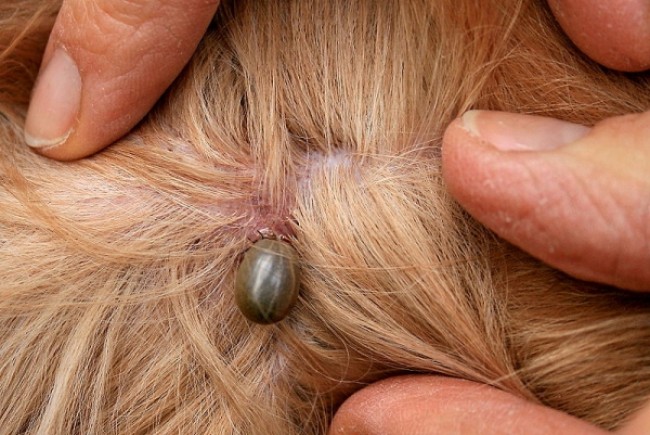and Dubai International Airport
and Dubai International Airport

Certainly, it’s a mouthful to say and as for the pronunciation… well, give it try it this way: urrr-lick-eeee-o-sis. Now, despite what you might be thinking, it’s not some tasty new dish (you didn't think that?): it’s a disease transmitted to dogs via ticks that are infected with Ehrlichia bacteria. The nasty little critters, which are considered part of the arachnid family, are indeed commonly found throughout the UAE, even with the absurdly harsh climate experienced here (they thrive in humid climates). And as parasites that like to suck blood from mammals (they’re just like little, teeny-tiny vampires!), they pass diseases on to their hosts - in this case, your pooch (and even on to humans) with a bite (CHOMP! CHOMP!). The slightly good news is that the disease has not yet appeared in cats in the UAE. To protect their dogs, Dubai owners will want to become familiar with theses little pests, understand how to prevent them from feasting on your canine buddy, and how to recognize the symptoms of the disease and how to treat it if, in fact, your furball does indeed become infected.
Firstly, know that every tick bite on your dog does not mean she’ll be infected. Usually, she won’t even notice the bites (nor will you) and she’ll suffer no illness or side effects. Ticks can be picked up in a variety of places, so no location is immune - they can be found in grassy areas, on plants, on shrubs and on other pets and animals. Once they land on their host, they’ll find a nice, cozy spot to tuck in for a meal. So, while they can be found almost anywhere on your pup, they do tend to hang out in places that are hard-to-reach, such as behind her ears, in her groin area and on the back of her neck. If you do indeed find a tick crawling about, grab a piece of sticky tape, catch him on the tape and cast him away into the rubbish bin never to be seen again! And if you come across an affixed tick… well, there is an art to their removal and if you do decide to tackle it on your own, be very careful to remove every last bit of the entire insect, especially its head. There are many suggestions on how to remove a tick (do a quick Internet search and you’ll see) but if you’re keen on getting the mini-Dracula off your dog and don’t feel sufficiently confident to tackle the task yourself, certainly do consult your vet.
As for treatment, regular use of Frontline spot-on every 3-4 weeks will do and for pups with lush, hairy coats, a coating with Frontline spray on the legs and underbelly adds an extra layer of tick prevention. And for those who live in an area teeming with ticks, a tick collar in addition to the application of Frontline should help (it’s also extra protection in case you... ah… maybe… forget to apply Frontline in a timely manner). Do note that the disease can be transmitted if the tick is latched on for more than two days. Furthermore note that the incubation period varies from 1-3 weeks, so if your dog is regularly treated against ticks, the chance of one actually being able to attach long enough to transmit the disease is really dramatically decreased.
Ehrlichiosis is one of the more difficult diseases to notice in your pup and can go unnoticed for quite some time. If you suspect she may be not herself and notice any of the following symptoms, she may be affected:
If she does indeed exhibit any of the above symptoms, your vet can confirm the disease through a blood test, and once diagnosed her treatment will most likely include a four-week course of antibiotics. Lastly, it is important to know that without treatment, the disease can be fatal, so if you do notice that she’s not herself, a visit with your vet is a good idea.
And for those who do board their pets, be aware that most facilities will require the application of Frontline. Here’s a bit more about how we deal with this: https://www.dkc.ae/what-we-do/boarding-daycare/prices-admission-requirements
Office Coordinators -cum- Receptionists
Animal Relocations Officers

